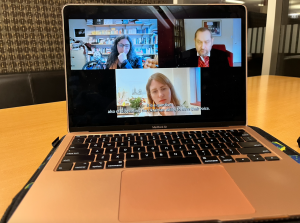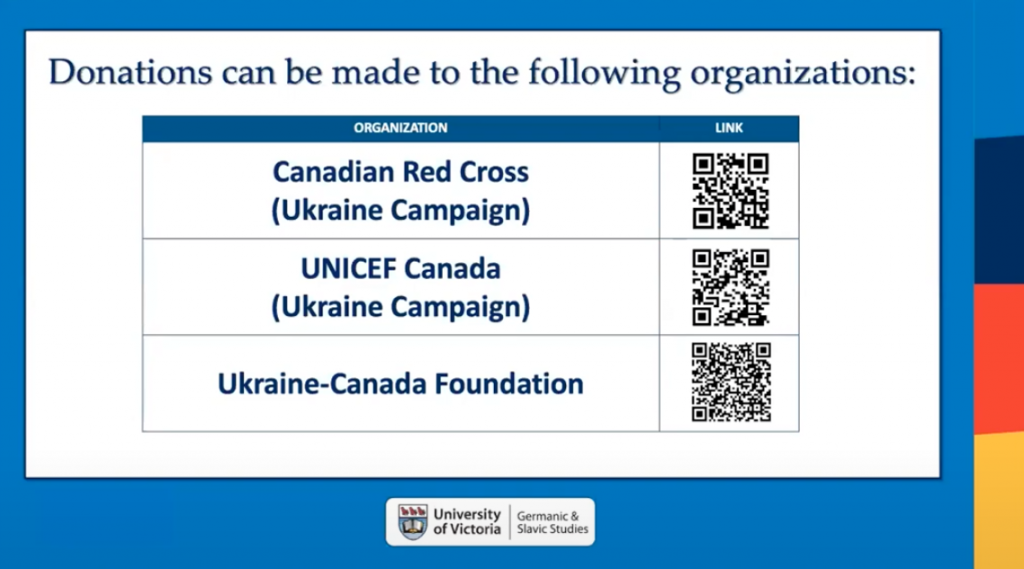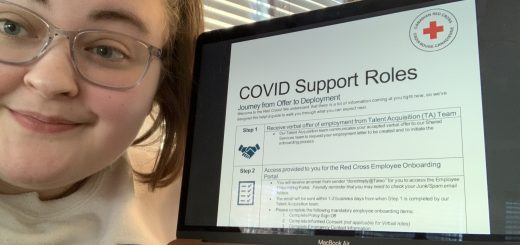The Ukraine Crisis: What you can do to help
On March 2, 2022, UVic hosted an online Teach-In on the rapidly evolving crisis in Ukraine after the invasion of Russia.
The teach-in was hosted by scholars Serhy Yekelchyk (Departments of History and Germanic & Slavic Studies) and Tamara Krawchenko (School of Public Administration).
Their purpose was to help educate the public and the UVic community on the current situation, its history, and what they can do to help.
 I attended, because like many UVic students, I was feeling lost and overwhelmed by the amount of information surrounding Ukraine. I know I want to help and learn, but it can be difficult to know where to begin or how best to support the Ukrainian people.
I attended, because like many UVic students, I was feeling lost and overwhelmed by the amount of information surrounding Ukraine. I know I want to help and learn, but it can be difficult to know where to begin or how best to support the Ukrainian people.
That’s why an event like this is so important. More than 650 people attended, and the impact of the event’s Zoom recording will have a massive reach as well, I’m sure.
The teach-in offered some fantastic insights into the history and politics surrounding the situation in Ukraine, and I encourage you to spend an hour of your time watching the recording as well to get a better sense of what we, as Canadian students, can do in this crisis.
But for a concise version of what I learned on how we can help, here is what I took away:
1. Donate to on-the-ground humanitarian groups
The Russian government is cutting off supplies to Ukraine, which means that people are suffering and resources are limited.
Dr. Yekelchyk explained that it is becoming almost impossible to find food and medications in Ukraine. Even though bordering European countries like Romania and Poland are taking in millions of refugees, their resources can only stretch so far.
Therefore, the most important thing we can do right now is donate to humanitarian groups who are trained professionals in dealing with humanitarian crises. The blog that was created for the UVic Teach-In for Ukraine has some fantastic information and links to these organizations. Check out the teach-in blog and take a look at the photo below for some helpful QR codes.

2. Learn where your information is coming from
Dr. Yekelchyk emphasized that whatever comes from the Russian media is disinformation aimed at dividing the West. Ukraine needs support in this warfare of misinformation, so it’s important to know where your information is coming from. The Teach-In blog also has some great information on avoiding misinformation.
3. Share reliable information only
 While social media plays a role in getting across important messages, we have to be careful about what we share, especially when so much Russian disinformation and cyber attacks are being directed at Western media.
While social media plays a role in getting across important messages, we have to be careful about what we share, especially when so much Russian disinformation and cyber attacks are being directed at Western media.
Know that major media outlets like CNN and BBC have protocols for fact-checking, including confirmation from multiple sources and geo-positioning.
It is undeniable that the people of Ukraine are suffering tremendous pain, death, and destruction. We need to be careful what we share on social media and decisively stand with Ukraine so as not to make that pain even worse.
Dr. Krawchenko mentioned Stop Fake and Bellingcat as two organizations that combat misinformation and share reliable information.
4. Make space for Ukrainian voices
Dr. Krawchenko explained that Canada has the largest Ukrainian diaspora organization in the world. We need to come together and support our Ukrainian community while also supporting the ability for Ukrainians to have their voices heard.
She mentioned some independent, reliable, on-the-ground Ukrainian media organizations to check out, including Euromaidan Press and Kyiv Post.
5. Educate yourself on the current situation and the recent Ukrainian political events
Lastly, it’s important that we make sure we have an understanding of what is happening in Ukraine, why it’s happening, and where it might go in the future.
Watching the full recording of the Teach-In is a great place to start, as well as checking out the reliable media organizations linked in this blog post.



